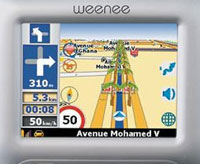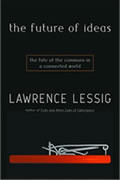Internet goes down, everything goes down…
[…]
Besides the Internet, the outage caused major disruption to television and phone services, creating chaos for the UAE’s public and private sectors.
[…]
The outage heavily crippled Dubai’s business section, which is heavily reliant on electronic means for billions of dollars’ worth of transactions daily.
[Source: CNN]
And all around the Middle East and beyond as well:
Egypt’s telecoms ministry said 70 per cent of the country’s internet network was down on Wednesday.
India was also affected, losing more than half its bandwidth initially.
Residents of Gulf Arab countries reported a slowdown in internet connectivity and disruption of services…
[Source: Al Jazeera]
This is what’s so scary about technology; we quickly get so used to it, we integrate it into our everyday lives and work, we become dependent on it for everything we do, and then when it fails for one reason or another our lives stop, we’re left crippled and helpless; we can’t go back and we can’t move forward; we just have to wait for things to be sorted out so we can go back to life as usual.
We’re too dependent on technology, and we don’t have a fail-safe plan; a major technological meltdown in the future could bring the whole world to a stand-still; and blow us back centuries into the past.
 Just a couple of days ago I was wondering when GPS would finally make it to Tunisia, and to my great surprise today, by accident, I came across a new website launched by Tunisia’s first private mobile operator Tunisiana publicizing a new product they’re launching called
Just a couple of days ago I was wondering when GPS would finally make it to Tunisia, and to my great surprise today, by accident, I came across a new website launched by Tunisia’s first private mobile operator Tunisiana publicizing a new product they’re launching called 